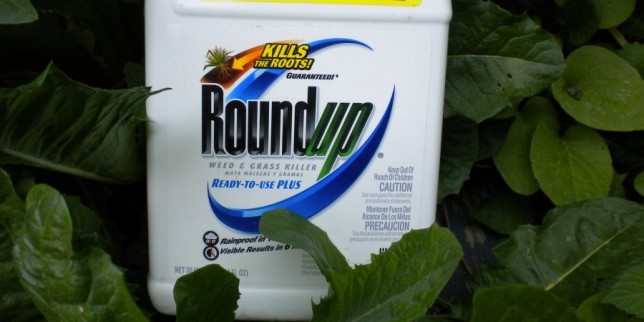Sri Lanka’s Department of Agriculture announced yesterday that it has officially lifted the ban on glyphosate with the Registrar of Pesticides as no justifiable reason has been found to impose a ban.

Source: www.colombopage.com
Sri Lanka in March this year banned the sale of Monsanto’s “Round Up” glyphosate weedicide after a study found that the weedicide is responsible for the increasing number of chronic kidney disease patients.
The decision to ban the weedicide sale was based on a directive of the President Mahinda Rajapaksa, who appointed a committee to look into the chronic kidney disease of unknown etiology (CKDu).
The research study conducted by Dr. Channa Jayasumana of the Rajarata University found that while the weedicide itself is not nephrotoxic, when it combines with hard ground water containing metals such as cadmium and arsenic, either naturally present in the soil or added through fertilizer, glyphosate becomes extremely toxic to the kidney.
However, since then the validity of Dr. Jayasumana’s research had come under question as the manufacturer Monsanto and other agrochemical producers have raised objections to the findings saying that there is no evidence to suggest the conclusion that glyphosate is responsible for CKDu.
A European glyphosate task force also has concluded that there is no true link to the kidney disease.
GM Watch comment: As for the “European glyphosate task force” mentioned in the article, which has “concluded that there is no true link” between glyphosate herbicide and chronic kidney disease, let’s hope the Sri Lankan government recognises that this “task force” is entirely made up of the pesticide companies that make and sell glyphosate herbicide!
Starting in the mid-1990s, CKDu was discovered among the rice paddy farmers in the North Central Province (NCP) of Sri Lanka and over the years since then, the disease spread rapidly to the other farming areas of the country, especially in North Central, North Western, Uva and Eastern Provinces.
A World Health Organization (WHO) reports estimated 15 percent of the population in North Central and Uva Province, about 60 000 people, had CKDu, and that 22,000 had died in the past 20 years in Anuradhapura alone from it.
The Agriculture Department, while noting that they have not found conclusive evidence which relates the kidney disease to pesticides in general, say that a glyphosate ban will affect the tea plantations and also the paddy cultivation drastically as it is the only effective weedicide for paddy and other commercial crops like, tea, coconut and rubber.
The Department however, cautioned that any pesticide/weedicide use has adverse effects on health and advised the farmers to use them in a controlled manner, according to a report in Ceylon Today.
Special officers will be deployed at Provincial Council levels to monitor and train farmers on the proper usage of glyphosate, the Department said.



















The following should, uh, “reassure” us all about Glyphie:
“The Department however, cautioned that any pesticide/weedicide use has adverse effects on health and advised the farmers to use them in a controlled manner, according to a report in Ceylon Today.
Special officers will be deployed at Provincial Council levels to monitor and train farmers on the proper usage of glyphosate, the Department said.”
Why do the Sri Lanka Government do like this ? Is it that all over the world buckle under MNCs instead of protecting their agriculture/ground water and other useful natural resources which are being polluted, spoiled, destroyed, damaged etc. Do not feel even for their younger generation and future generations !!! Unfortunate, really speaking !!! Man is destroying himself by greed of land, power money etc.
Sure they have a justifiable reason to lift the ban they want to lower the population.
Boycotting Spice/Foods from India now that it’s Government has become corrupted can’t be trusted!
This is the same Sri Lankan government that thinks nothing of challenging western countries who highlight the government’s human rights abuses accusing them of having a colonialist mindset. And yet, when these same countries do in fact behave precisely in such a colonialist manner, our so- called nationalist government buckles shamelessly under their pressure, at the expense of the health and safety of the Sri Lankan people who elected it into power.
Yes…it is about profit. Their profit at your loss of health.
This is extremely sad and disappointing. As if Monsanto doesn’t realize that people will assume that the lift on the ban was a matter of paying off government officials. I truly feel that this is the compromise of our integrity as a race of people.